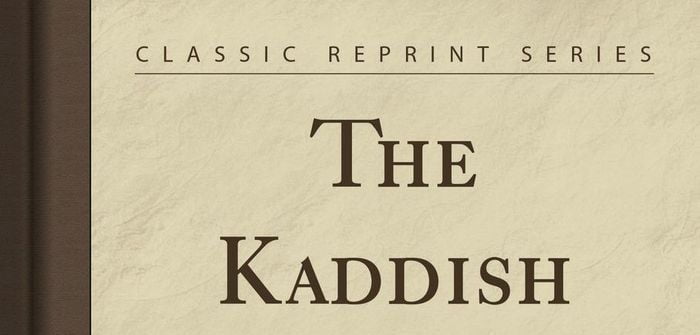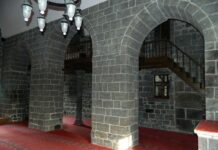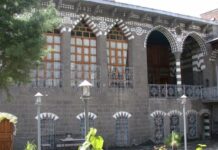The seven girls took alarm.
“That is for joy,” explained the “grandmother.” “I have known that happen before.”
“A boy… a boy!” sobbed Reb Selig, overcome with happiness, “a boy… a boy… a Kaddish!”
The little boy received the name of Jacob, but he was called, by way of a talisman, Alter.
Reb Selig was a learned man, and inclined to think lightly of such protective measures; he even laughed at his Cheike for believing in such foolishness; but, at heart, he was content to have it so. Who could tell what might not be in it, after all? Women sometimes know better than men.
By the time Alterke was three years old, Reb Selig`s cough had become worse, the sense of oppression on his chest more frequent. But he held himself morally erect, and looked death calmly in the face, as though he would say, “Now I can afford to laugh at you—I leave a Kaddish!”
“What do you think, Cheike,” he would say to his wife, after a fit of coughing, “would Alterke be able to say Kaddish if I were to die to-day or to-morrow?”
“Go along with you, crazy pate!” Cheike would exclaim in secret alarm. “You are going to live a long while! Is your cough anything new?”
Selig smiled, “Foolish woman, she supposes I am afraid to die. When one leaves a Kaddish, death is a trifle.”
Alterke was sitting playing with a prayer-book and imitating his father at prayer, “A num-num—a num-num.”
“Listen to him praying!” and Cheike turned delightedly to her husband. “His soul is piously inclined!”
Selig made no reply, he only gazed at his Kaddish with a beaming face. Then an idea came into his head: Alterke will be a Tzaddik, will help him out of all his difficulties in the other world.
“Marne, I want to eat!” wailed Alterke, suddenly.
He was given a piece of the white bread which was laid aside, for him only, every Sabbath.
Alterke began to eat.
“Who bringest forth! Who bringest forth!” called out Reb Selig.
“Tan`t!” answered the child.
“It is time you taught him to say grace,” observed Cheike.
And Reb Selig drew Alterke to him and began to repeat with him.
“Say: Boruch.”
“Bo`uch,” repeated the child after his fashion.
“Attoh.”
“Attoh.”
Selig saw Afterke
When Alterke had finished “Who bringest forth,” Cheike answered piously Amen and Reb Selig saw Afterke, in imagination, standing in the synagogue and repeating Kaddish, and heard the congregation answer Amen, and he felt as though he were already seated in the Garden of Eden.
Another year went by, and Reb Selig was feeling very poorly. Spring had come, the snow had melted, and he found the wet weather more trying than ever before. He could just drag himself early to the synagogue, but going to the afternoon service had become a difficulty, and he used to recite the afternoon and later service at home, and spend the whole evening with Alterke.
It was late at night. All the houses were shut. Reb Selig sat at his little table, and was looking into the corner where Cheike`s bed stood, and where Alterke slept beside her. Selig had a feeling that he would die that night. He felt very tired and weak, and with an imploring look he crept up to Alterke`s crib, and began to wake him.
The child woke with a start.
“Alterke”—Reb Selig was stroking the little head—“come to me for a little!”
The child, who had had his first sleep out, sprang up, and went to his father. .
Reb Selig sat down in the chair which stood by the little table with the open Gemoreh, lifted Alterke onto the table, and looked into his eyes.
“Alterke!”
“What, Tate?”
“Would you like me to die?”
“Like,” answered the child, not knowing what “to die” meant, and thinking it must be something nice.
“Will you say Kaddish after me?” asked Reb Selig, in a strangled voice, and he was seized with a fit of coughing.
“Will say!” promised the child.
“Shall you know how?”
“Shall!”
“Well, now, say: Yisgaddal.”
“Yisdaddal,” repeated the child in his own way.
“Veyiskaddash.”
“Veyistaddash.”
And Reb Selig repeated the Kaddish with him several times.
The small lamp burnt low, and scarcely illuminated Reb Selig`s yellow, corpse-like face, or the little one of Alterke, who repeated wearily the difficult, and to him unintelligible, words of the Kaddish. And Alterke, all the while, gazed intently into the comer, where Tate`s shadow and his own had a most fantastic and frightening appearance.
Read More about Domestic Conflicts part 19








